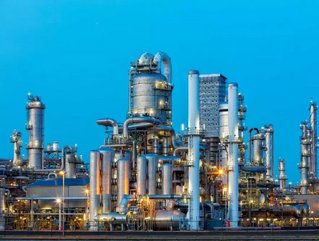Hurricane Laura illustrates need for refinery optimisation

In our final article on Fujitsu’s White Paper, we explore how the company’s optimisation technology and services can help transform the energy sector.
The recent events of Hurricane Laura striking the US have emphasised Fujitsu’s ongoing call to action for greater sustainability in the energy sector through tech-based innovation (as highlighted in its recent White Paper).
With the Gulf Coast, East and Midwest of the country affected, the effect on oil refineries has been significant; sites in Texas and Louisiana experienced partial or total shutdowns, a course of action which also impacted pipelines and electrical grids.
CBS estimated that 84% of oil produced in the Gulf region was effectively taken off the market (1.6 million barrels per day). This comes as only the latest in a series of blows sustained by the 2020 oil and gas industry, of which 60 companies have officially filed for bankruptcy, even as prices of crude are currently experiencing a rebound.
Refineries are a delicate balancing act
As discussed in the ‘Reimagining resource allocation optimisation’ section of the Fujitsu White Paper, asset management can be a difficult and delicate task, often requiring informed and highly coordinated decision-making that human capabilities alone cannot cope with.
The aforementioned shutdowns of refineries are far from simple or even safe procedures, especially when maintenance or repair work is factored in. Steps could include draining liquid hydrocarbons, water washing columns and complex welding.
Furthermore, a study by The Canadian Fuels Association typifies the complexities of meeting optimal market demand: refining too much ignores the limited marketability and mixed value of oil, while too little places high importance on imports, eliminates high-level domestic employment and ultimately weakens the local economy.
The best approach, the report concludes, is one wherein domestic demand is met with a modest surplus remaining available for export.
Although this may mean that extraneous refineries are shut down, the remaining active sites could benefit from “improved efficiency and expanded capacity.”
Fujitsu: driving energy’s optimisation
As we have observed throughout our series exploring the ways in which Fujitsu can help transform the energy sector through sustainability and digital technology, COVID-19 has remained a prominent factor in the conversation and refinery optimisation is no different.
Social distancing rules are likely to have a disruptive effect on the industry, particularly as inefficient, people-driven processes continue to prevail.
Most energy companies still manage resource allocation with human beings - usually, resource managers manually juggling spreadsheets and making decisions based solely on who looks to be available next, as noted in the White Paper.
However, with digital tools such as Fujitsu’s quantum-inspired Digital Annealer, many of the prevailing disruptions experienced while striving for refinery optimisation can be reduced, improved or managed in a more holistic way.
North American companies that recognise the value of the company’s argument - energy can be reimagined and technologically optimised to succeed both financially and economically - can go one step further by completing Fujitsu’s optimisation assessment tool.
Combining practical advice on AI (artificial intelligence), machine learning and quantum capabilities, energy companies can find out how Fujitsu can support their business priorities and develop a roadmap for sustainable future growth.
Read more about how Fujitsu can develop your optimisation capabilities by downloading the company’s White Paper or contact [email protected]






